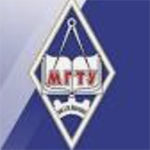Introduction to Magnitogorsk State Technical University
Located in Magnitogorsk, Russia, Magnitogorsk State Technical University is a Russian institution of higher learning with a long history and high reputation. It aims to cultivate professionals in engineering, natural sciences, humanities and social sciences, and has made important contributions to the economic and social development of Russia.
Overview
Student size: The school currently has more than 12,000 students, including full-time students and distance education students.
Faculty: There are about 800 teachers, of which more than 530 have doctoral degrees and 98 have doctoral titles.
History and establishment time
The school was founded in 1932 and was originally established as a branch of the Ural Higher Education Institution. In 1934, it was officially named Magnitogorsk Mining and Metallurgical Institute. In 1951, it was named after Grigory Ivanovich Nosov, the long-term director of the Magnitogorsk Iron and Steel Plant. In 1998, it was named.
School strength
Teaching achievements: 80 Over the years, it has trained a large number of outstanding professionals, and its graduates play an important role in engineering, science, technology, business and humanities in Russia and other countries.
Scientific research strength: The school's scientific research center includes 14 scientific schools and about 20 research laboratories, the Nanosteel Institute, the Innovation Business Incubator and the Youth Research Center, etc. It has achieved many results in major scientific research fields such as metallurgy, nanosystems and nanomaterials, crystal material processing, power and energy saving, information and telecommunications systems, rational use of natural resources, transportation system design and management, environmentally friendly mining, product quality control, etc., and has undertaken a large number of basic and applied research projects sponsored by the government and private customers.
International cooperation: It has established extensive cultural and scientific ties with 37 partner universities from 60 countries, carried out student exchanges, teacher visits, scientific research cooperation and other projects, and participated in the EU's Tempus project and curriculum modernization projects. The school's scholars also serve as scientific advisors to graduate students at overseas universities and actively participate in international conferences and competitions.
Institutional Nature
Public university.
Educational Philosophy
Committed to cultivating students' professional qualities in the field of science and technology, providing intellectual support for students' research activities and discoveries, cultivating students' ability, enthusiasm and will to work wisely, creatively and efficiently, so that they can better contribute to the country and the world, emphasizing the combination of education and practice, and focusing on the improvement of students' comprehensive quality to meet the society's demand for professional talents.
Key laboratories and disciplines
Key laboratories: The school has key laboratories such as the Nanosteel Research Institute, which provide advanced experimental platforms for research in related fields such as materials science and metallurgical engineering.
Key disciplines: Metallurgy, Materials Science and Technology, Mechanical Engineering, Mechatronics and Robotics, Transportation Process Technology, Mining, Construction Engineering, Information Security and Automation Systems, Thermal Engineering and Thermal Technology, Power Engineering and Power Technology, Electronics and Nanoelectronics, Computer Engineering and Programming and other disciplines are the school's key disciplines, with significant advantages in teaching, scientific research and practice.
Department
The school has 20 There are 3 colleges covering different levels of education from undergraduate to postgraduate, including the Metallurgical College, Mechanical Manufacturing College, Architecture College, Computer Technology and Automation College, Economics College, Humanities College, etc. Each college has multiple majors, such as economics and accounting, commodity management, business management, metallurgy, welding technology, process and production automation, computer network system, computer and automation software system, etc.
Ranking
In the QS Emerging Europe and Central Asia University Rankings, the school is ranked 251-300.
Expenses
Tuition fees vary depending on the major, and no clear specific fee standards have been found yet, but the tuition fees of Russian public universities are relatively affordable, and the school may provide scholarships and other funding policies for outstanding students.
Campus
Teaching facilities: The campus has well-equipped libraries, modern laboratories, teaching buildings and other teaching facilities, providing students with good learning resources and environment.
Living facilities: The school has well-equipped dormitories to provide students with comfortable living conditions. In addition, it also has a health center, entertainment center and sports facilities, such as gymnasiums and playgrounds, to provide students with health care services and a rich variety of extracurricular activities.
Campus culture: The school organizes various cultural activities, academic lectures and festival celebrations, etc., creating a strong campus cultural atmosphere. There are also various student associations and clubs, such as music clubs, sports clubs, academic exchange associations, etc. Students can participate according to their own interests and hobbies, expand interpersonal relationships, and improve their comprehensive qualities.
-

Peter the Great St.Petersburg Polytechnic University
-
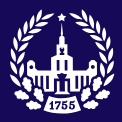
Moscow State University M. V. Lomonosov
-
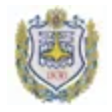
Bauman Moscow State Technical University
-
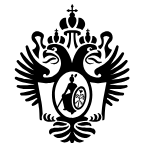
St. Petersburg State University
-

Tomsk State University
-

Peoples' Friendship University of Russia
-
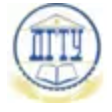
Don State Technical University
-
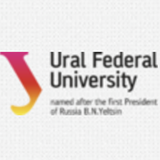
Ural Federal University
-

Moscow Institute of Physics and Technology
-
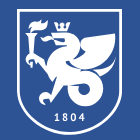
Kazan Federal University
-

Mesoamerican University
-

Istmo University
-

Mariano Galvez University of Guatemala
-

Regional University of Guatemala
-

Galileo University
-

Francisco Marroquín University
-

Rafael Landívar University
-

University of the Valley of Guatemala
-

University of San Carlos of Guatemala
-

Technological Institute of Tlaxcala Plateau
-

Golfo University
-

Technological University of South Sonora
-

Technological University of Huejotzingo
-

Tizimín Institute of Technology
-

Chilpancingo Institute of Technology

